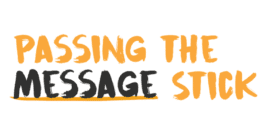Charities Make Their Voices Heard Amid Political Chaos – 2018 in Review

20 December 2018 at 8:37 am
In a year filled with political chaos and upheaval, the charity sector had to fight hard to make its voice heard. But through strong advocacy efforts, the sector was able to achieve some key wins on important social issues, as Luke Michael reports in this review of 2018.
The year began under the shadows of the federal government’s foreign donations bill, which sought to block donations by foreign entities attempting to influence Australian electoral outcomes.
Charities argued the bill would unfairly restrict advocacy and impose unnecessary red-tape on these organisations, and a survey by Pro Bono Australia in February found the majority of charities were unclear on how they stood to be affected by the bill.
One survey respondent said: “While this may has been positioned as a political issue – this bill will directly impact the ability for charities to deliver necessary services that help people, often with life saving programs.”
These fears led 25 major Australian charities to form a coalition to oppose the bill, called the Hands Off Our Charities campaign.
While a joint standing committee in April made 15 recommendations to change the bill and provide greater clarity to charities, the sector remained concerned.
Charities Remain Concerned with Foreign Donations Bill https://t.co/ETxoxe6pkv #HandsOffOurCharities @ACFID @ComCouncil @GetUp @theIPA @OxfamAustralia @GreenpeaceAP @PhilanthropyAus @ProBonoNews
— ACOSS (@ACOSS) April 10, 2018
Amid this advocacy battle, the government handed down a federal budget in May headlined by tax cuts.
While the government’s mental health and impact investment commitments were welcomed, welfare, foreign aid and homelessness groups felt “forgotten and abandoned” by the budget.
Political chaos then gripped Canberra in August, when Malcolm Turnbull was deposed as Prime Minister and replaced by Scott Morrison.
Charities lamented having to hit the reset button on government relations under the new prime minister, as the fallout from crisis left the charity sector facing its sixth minister in five years.
Eventually, Senator Zed Seselja was appointed the new minister for charities, while Paul Fletcher and Sarah Henderson were appointed the new social services ministers, after outgoing minister Dan Tehan was moved to education amid a cabinet reshuffle.
Advocacy remained a big issue for the sector in 2018, especially with the ongoing debate around the foreign donations bill.
The sector was able to achieve a number of key wins on important social issues, despite the chaos in Canberra.
More than 120 Australian aid NGOs joined forces to get #KidsOffNauru, placing pressure on the government to transfer all children remaining on the island to Australia.
The campaign helped the number of children on Nauru fall to just 10 by December, while independent MP Kerryn Phelps recently introduced a bill to remove all children from the island and this looks likely to pass when Parliament resumes next year.
The Home Stretch campaign, led by Anglicare Victoria CEO Paul McDonald, successfully advocated for foster care in Victoria to be raised from 18 to 21, which is expected to reduce the rate of youth homelessness.
McDonald said the campaign would now build a case for other state governments to follow suit.
“Home Stretch will not only be working with the Victorian government to implement this policy, but campaigning in other states to ensure we have a policy of continued care through to 21 available right around Australia,” McDonald said.
https://twitter.com/The_HomeStretch/status/1050187718397808640
The National Disability Insurance Scheme continued its roll-out across Australia in 2018, and it was revealed in August almost 200,000 Australians were accessing the scheme.
A major issue highlighted in 2018 was the struggles people with mental illness faced accessing the scheme. These fears were slightly lessened when a psychosocial stream for the NDIS was added in October.
The disability community were also alarmed when NDIS eligibility rules for people with autism came under review, with fears the government were looking to reduce the number of people with autism using the NDIS.
Autism Awareness Australia CEO Nicole Rogerson, told Pro Bono News that the autism community was “terribly shocked” and disappointed by the possible changes, “but maybe not surprised”.
“I think it’s fairly obvious that the government is going to make changes to certain sections of children with autism and their eligibility under the NDIS, and you’d have to say the reason for that is cost cutting,” Rogerson said.
It has been confirmed that eligibility rules for people with autism under the @NDIS are under review, but the NDIA denies reports that any changes have already been made. @NicRogerson @AutismAwareAus https://t.co/GuBMxQZMvq
— Pro Bono News (@ProBonoNews) May 21, 2018
A special fraud task force was formed to protect the NDIS from rorts and the grasp of organised crime, but concerns were raised this would criminalise people with disability.
Also, disability service providers called on the government to urgently invest $220 million into the sector, to prevent organisations collapsing under the growing costs of transitioning to the NDIS.
There were a number of big leadership moves that shook up the sector in 2018. Acclaimed domestic rights campaigner Rosie Batty stepped down as CEO of the Luke Batty Foundation, as the foundation sought to close its doors.
Dr John Falzon resigned as national CEO of St Vincent de Paul Society to seek federal Labor preselection in the seat of Canberra, but was unsuccessful. He then announced in October he was joining progressive think tank Per Capita.
Former chancellor of Melbourne University, Glyn Davis, was announced as the new head of the $3.6 billion Ramsay Foundation in December, while Libby Davies retired as White Ribbon CEO in July.
White Ribbon was then plunged into controversy in October after removing a statement supporting women’s reproductive rights from their website. Soon after, CEO Tracy McLeod Howe was ousted after only three months in the role.
McLeod Howe told Pro Bono News at the time that she didn’t think she and the organisation were the right fit for each other.
“I wasn’t the leader White Ribbon wanted for this next chapter,” McLeod Howe said.
The sector was able to achieve another advocacy victory in September, when the government agreed to amend the foreign donations bill to protect charitable advocacy.
We agree – so much better! The change to the definition is the key (good) change. Foreign Donations Bill Changes Labelled a Win For Charities https://t.co/Vk5bMdxOI4 via @probononews
— Not-for-profit Law (@nfp_law) September 24, 2018
By November, when the amended foreign donations bill passed the Senate, the charity sector was celebrating the passage of the legislation.
In a statement, the Community Council for Australia praised the efforts of advocates to amend the bill to lessen the impact on charities.
“The revised bill is a good demonstration of how public policy can be improved when the concerns of charities are taken seriously,” the statement said.
Another important moment for the sector was the Australian Charities and Not-for-profits Commission five-year review.
The final report, tabled in Parliament in August, was welcomed by the charity sector. The review said the sector needed a single national scheme and fundraising reform to combat an “unacceptable level of unnecessary red tape”.
This recommendation was particularly welcomed by the #fixfundraising coalition, which continued its fight in 2018 to simplify fundraising regulations for the sector.
This year also saw more record breaking philanthropic donations than ever, across education, the arts, civil society, and the environment.
This was headlined by a $30 million donation to the University of Melbourne from husband and wife philanthropists Jane Hansen and Paul Little AO, which marked the largest donation of its kind in the university’s history.
Meanwhile, Australia’s top not for profits and social enterprises celebrated after sharing $5.5 million in prize money for their use of technology to make a social difference through the Google Impact Challenge.
The cooperatives and mutual sector also celebrated after new legislation was announced in October, allowing them to raise capital in the same way investor-owned corporations could, without sacrificing their member-owned structure.
Also in the world of good business, Resilient Families – an intensive family support program delivered by The Benevolent Society – became the first social benefit bond to finish in Australia.
And changes to equity crowdfunding laws in Australia allowed Food Connect to raise more than $2 million dollars to become Australia’s first community-owned local food hub, while Enova Community Energy’s equity crowdfunding campaign raised more than $1 million to help the company expand across Australia.
In December, the federal government finally released its response to the religious freedom review, and said the government would amend the Charities Act 2013 to clarify that religious charities advocating traditional marriage would not be at risk of losing their charitable status.
But legal experts warned that this could create a backlash, as charities scrambled to clarify their legal right to advocate on other controversial issues.
“Charities with the purpose of advancing religion might want similar clarification about opposing early-term abortions or assisted dying legislation. The list of clarifications could end up being much longer than the act itself,” Sue Woodward, head of Justice Connect’s Not-for-profit Law service told Pro Bono News.
This legislative clarification as recommended by the #Ruddockreview isn't necessary and is a bad idea. If I was an environment group I would be asking for a clarification that I can advocate against 'clean' coal without risking my charity status. https://t.co/Po71YRaWAX
— Sue Woodward (@nfp_nerd) December 13, 2018
Also in December, Labor held their national conference, and the response from the social sector was mixed.
Anti-poverty advocates slammed Labor’s failure to commit to raising Newstart, despite overwhelming calls from the sector to raise the payment.
But there was strong support for the party’s election promise of 250,000 affordable rental properties, after concerns were raised throughout the year about the impending closure of the National Rental Affordability Scheme.
The year ended with Pro Bono Australia opening nominations for the 2018 Impact 25 Awards, allowing people to pick the year’s most influential people in the social sector.
It also ended similarly to 2017, with The Royal Flying Doctor Service again named as the country’s most reputable charity for the eighth year straight.
So while 2018 was a year of political upheaval, the charity sector fought against attacks on advocacy to ensure their voice was heard as loudly as ever.
And with a federal election now only months away, 2019 is set to be an incredibly busy and potentially sector-shaping year for Australia’s charities and not for profits.








Some positive outcomes for the environment from the Labour conference last week. Not all bad news there.